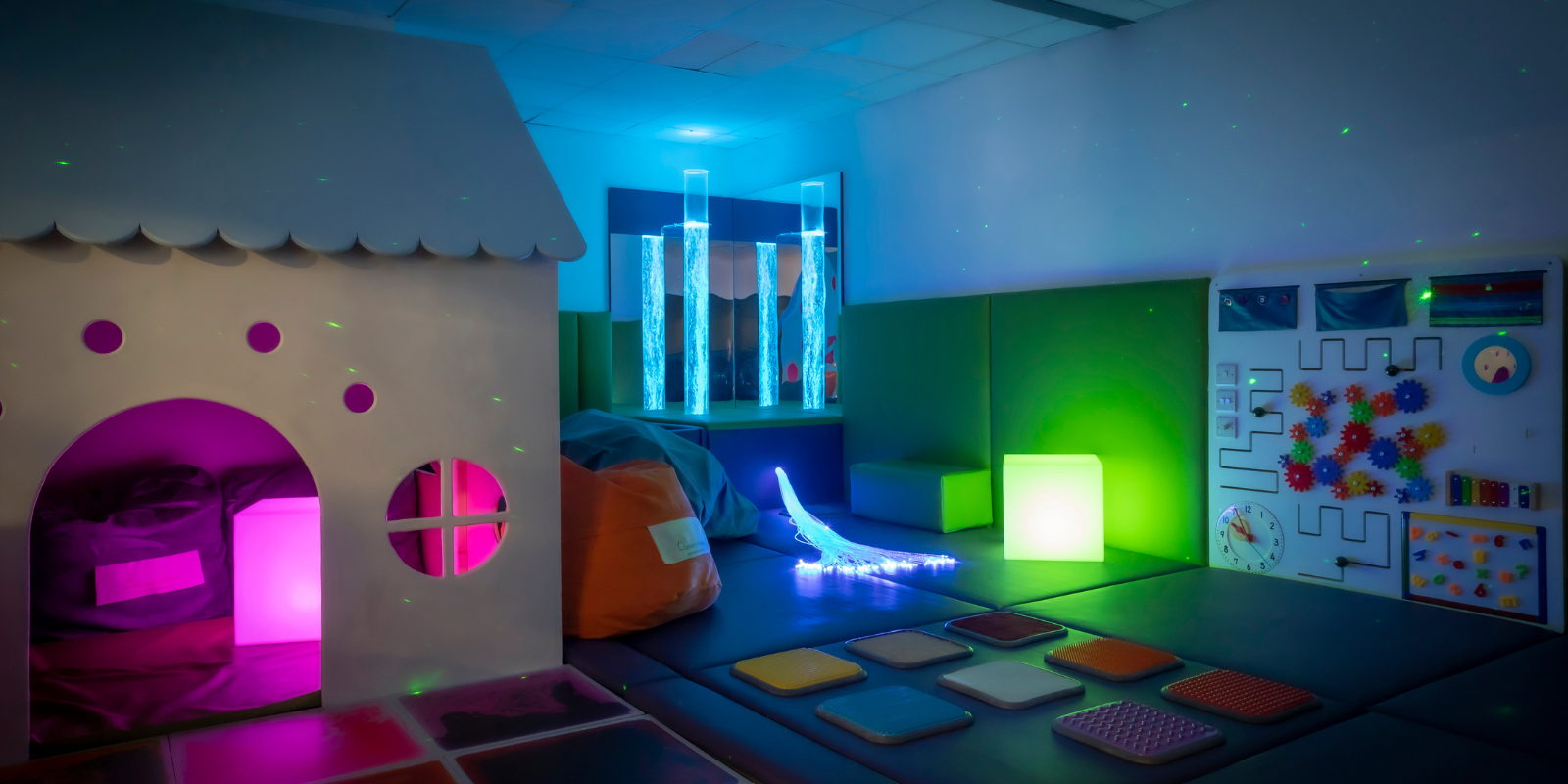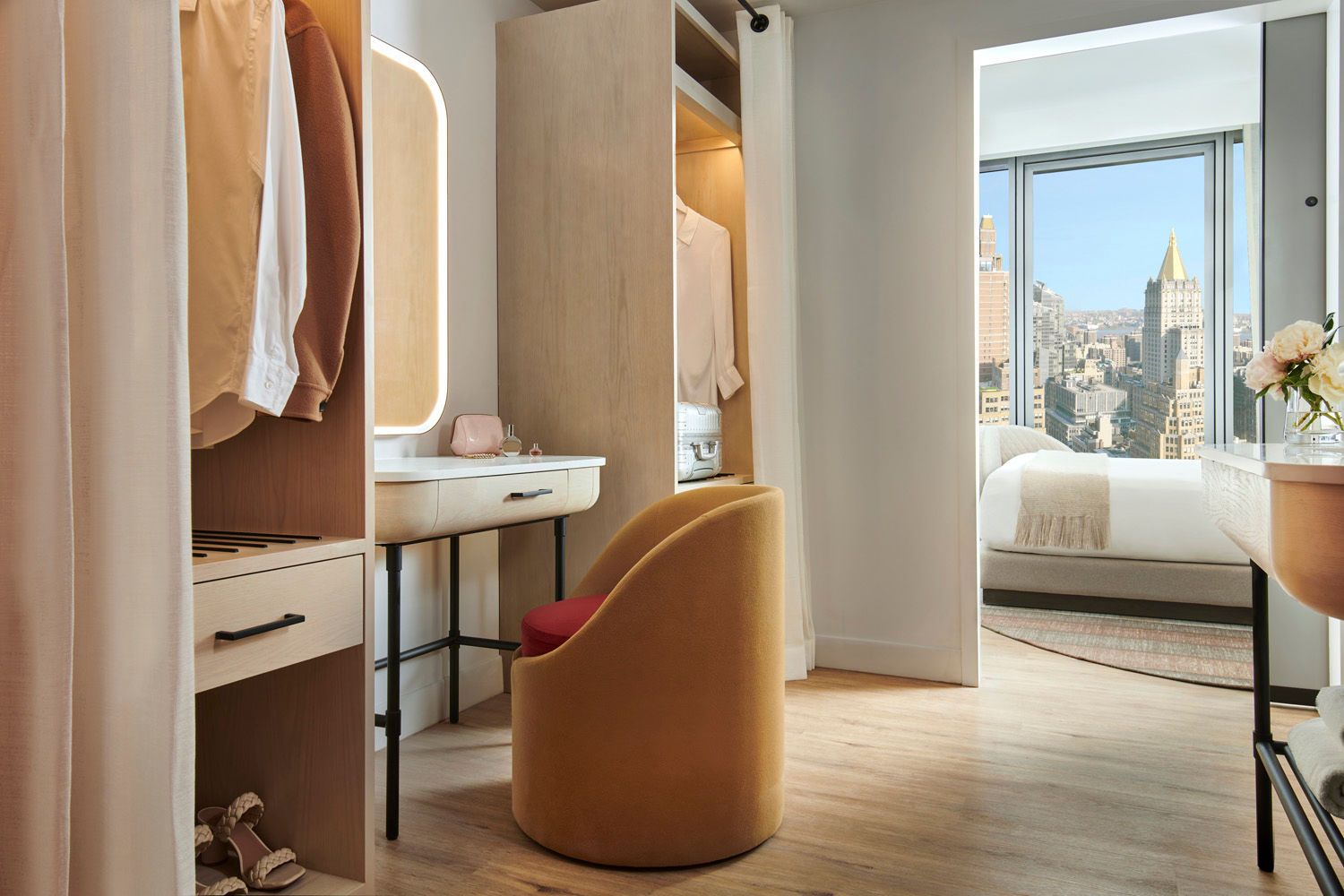Trend: Sensory Hotel Suites

An increasing number of hotels are introducing special sensory suites: rooms where light, sound, scent, and texture are deliberately softened, allowing people with autism, ADHD, or other sensory sensitivities to travel more comfortably. Neuro-inclusive hotel rooms are becoming a trend.
What makes a sensory suite different?
Think of dimmable, warm lighting (so no harsh spotlights), blackout curtains, soundproofing, soft bedding without scratchy labels or seams, clearly structured layouts, calming colour palettes, and, where possible, a separate ‘cooldown’ corner. Some hotels go even further with soothing visual elements and scent regulation, designed for guests with autism, dementia, or ADHD. 
Service that calms
It’s not only the rooms that can be adapted. The experience begins before the guest checks in. Examples already being adopted by sensory-driven hotels include quiet or flexible check-in times upon request, and in-room check-in instead of at the front desk. Some hotels also send sensory guides in advance, outlining lighting levels, peak times for breakfast or the pool, and other potential stressors. Theme parks like LEGOLAND already provide such guides - so why shouldn’t hotels? Other measures include scheduling cleaning-free periods or predictable cleaning times, to avoid unexpected scents or noises, such as sudden knocks on the door. And finally, creating quiet areas where guests can decompress.
How to get started quickly
-
Start with an assessment. Which stimuli dominate your property? Light (LED flicker), ambient noise, or potentially irritating scents such as cleaning products? From there, make small changes—warmer bulbs, quieter closing mechanisms, fragrance-free cleaning supplies. These are the quick wins.
-
Choose a framework. Do you want primarily sensory accessibility, full autism training and tools, or step-by-step training with your own visitor guides? Certification helps both marketing and quality.
-
Make it bookable. List “Sensory Suite” as a separate room category with a clear feature list (blackout curtains, soundproofing, quiet location, medication fridge, low-stimulation textures), and offer quiet check-in slots at the reservation stage.
-
Train and test. Use scenario-based training, covering topics such as what to do during overload, non-verbal communication, clear instructions without touch and evaluate this annually.
-
Communicate predictability. Publish floor plans, peak hours (breakfast/lobby/pool), a sensory FAQ, and sample photos of rooms without wide-angle tricks. Travellers prefer to over-plan rather than under-plan.
 Why invest in this?
Why invest in this?
You might wonder: why go to all this effort for just a few guests? But in today’s overstimulating, stressful world, more and more people experience sensory overload. There is also greater recognition of autism, ADHD, high sensitivity, and anxiety disorders. But it’s not just about those with diagnoses. Research and practice show that families with autistic members only feel confident travelling when staff are trained and environments are predictable.
Destinations and hotels that take this seriously - from independent city hotels to large resorts - lower the threshold significantly and win back loyal guests who would otherwise stay home. For other guests, it demonstrates true hospitality: showing that you care for all kinds of travellers. Sensory suites are not a fad, but a necessary evolution of hospitality. With certified training programmes, low-stimulation rooms, and practical steps such as quiet check-in times, you can make the difference between merely “getting through” a holiday and genuinely relaxing.
Examples:
-
Tullamore Court Hotel (Tullamore) – Offers The Sensory Room, designed especially for guests with autism, dementia, or a variety of other needs. The room accommodates 2 adults and up to 3 children.
-
Avista Resort (North Myrtle Beach) – Provides Sensory-Friendly Spaces, a calm and welcoming atmosphere, and trained staff to support families with children on the spectrum. Created in partnership with Champion Autism Network.
-
Radisson Blu Sligo (Sligo) – Features a Sensory Room with tactile fabrics, comforting objects, calming music via the TV, and cheerful colours.
-
DeLuna Hotels (Granada) – This small Spanish chain is working towards becoming “autism friendly”, with trained staff, pictogram signage, adapted rooms, and quiet zones for easily overstimulated travellers.
Don't miss any exclusive Independent Hotel Show Amsterdam, interviews, insights and event news by signing up for our newsletter here.
)

)
)
)
)
)
)

)
)
.png/fit-in/400x800/filters:no_upscale())
)
)
)
)
)
)
)
)
)
)
)
)
)
)
)
)
)
)
)
)